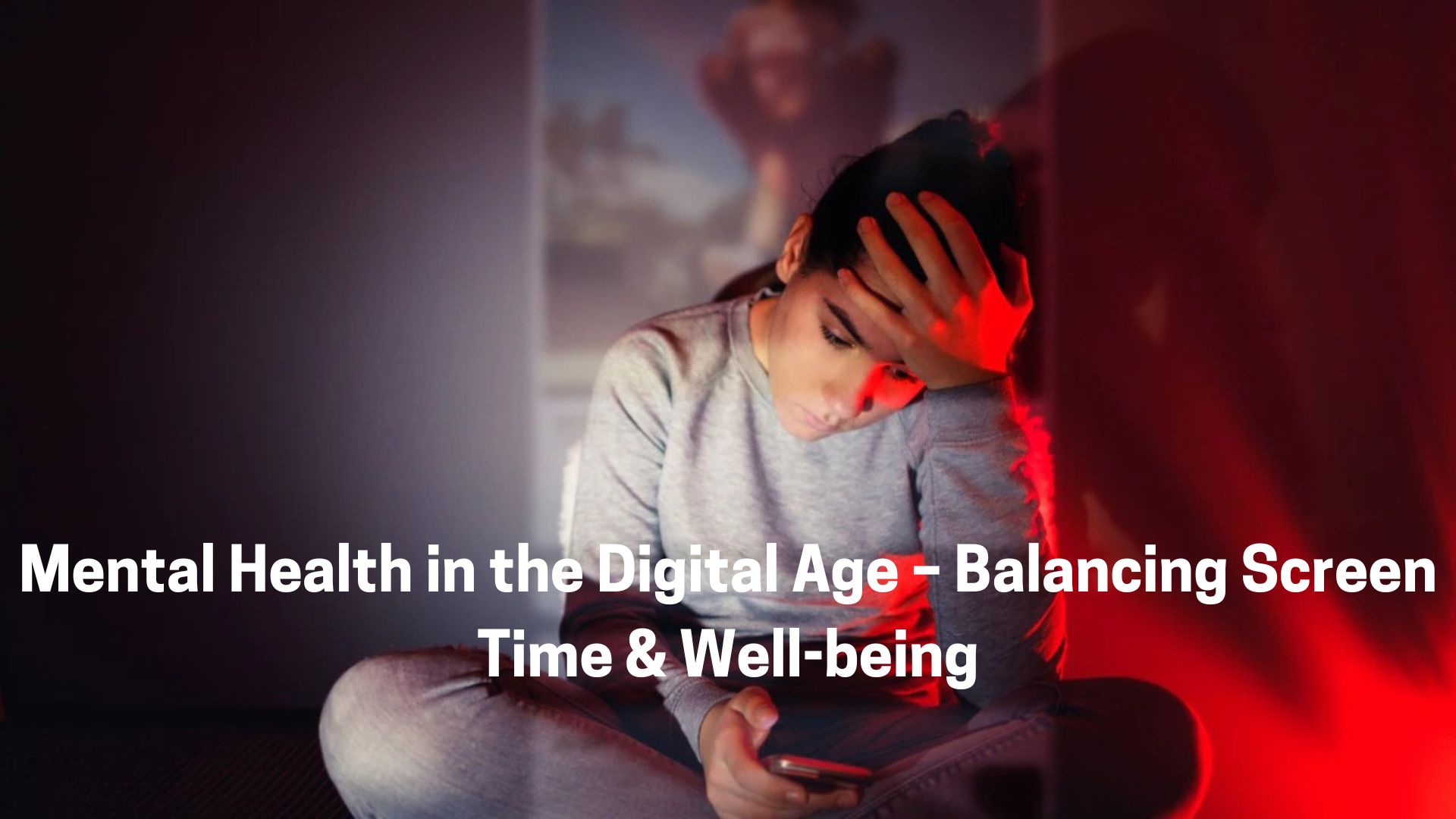The digital world has transformed how we work, communicate, and entertain ourselves, but it has also reshaped our mental health. From constant notifications to endless scrolling, excessive screen time is linked to stress, anxiety, and sleep issues. So, how can we strike a healthy balance between technology and well-being? Let’s explore.
The Impact of Excessive Screen Time on Mental Health
While technology offers convenience and connectivity, too much screen time can negatively affect mental and emotional well-being.
Increased Anxiety and Stress
- Social media platforms are designed to be addictive, leading to comparison anxiety and fear of missing out (FOMO).
- Constant exposure to negative news (doomscrolling) increases stress and pessimism.
Poor Sleep Quality
- Blue light from screens disrupts melatonin production, making it harder to fall asleep.
- Late-night scrolling overstimulates the brain, reducing deep sleep.
Reduced Attention Span and Productivity
- Too many notifications lead to distractions, making it difficult to focus.
- Social media creates dopamine-driven reward loops, affecting self-discipline.
Digital Burnout and Mental Fatigue
- Long hours of screen exposure can lead to mental exhaustion and a lack of motivation.
- Remote work and online learning increase fatigue and decrease real-world interactions.
Practical Tips to Balance Screen Time and Mental Well-being
To maintain a healthy relationship with technology, consider these strategies:
Set Screen Time Limits
- Use built-in screen time trackers on your phone to monitor usage.
- Set app time limits for social media and gaming.
- Take a 30-60 minute break from screens every few hours.
Create a Tech-Free Night Routine
- Avoid screens at least one hour before bed and replace them with reading or journaling.
- Use a blue light filter or switch to night mode in the evening.
- Charge your phone outside the bedroom to avoid late-night scrolling.
Practice Digital Mindfulness
- Unfollow negative accounts that cause stress or comparison.
- Take social media detox days (one or two days per week without apps).
- Use the “Do Not Disturb” feature to reduce unnecessary notifications.
Prioritize Real-World Activities
- Swap screen time for outdoor activities, hobbies, or exercise.
- Face-to-face interactions improve mood more than texting or video calls.
- Try the “5:1 Rule” – for every five hours of screen time, spend one hour offline.
Use Technology for Good
- Follow mental health pages that offer positive content.
- Use meditation apps like Calm or Headspace for relaxation.
- Try audiobooks or podcasts instead of endless scrolling.
Finding Balance in a Digital World
Technology is here to stay, but our relationship with it is in our hands. By setting boundaries and practising mindfulness, we can enjoy the benefits of digital life without compromising our mental well-being.
How do you manage your screen time? Let’s discuss.

